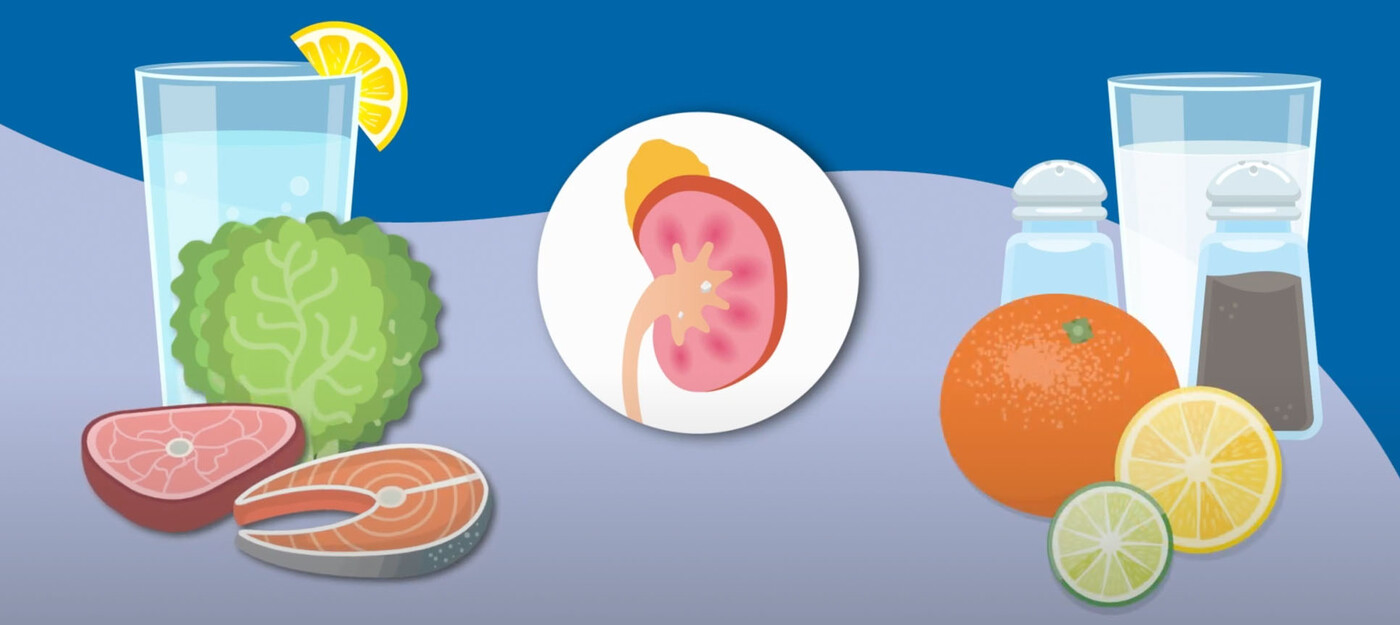Learn to Prevent Recurring Kidney Stones

The causes of kidney stones can vary widely from person to person. If you’ve had a single kidney stone, changes in diet may be all you need to prevent another stone from forming.
Costs of Recurring Kidney Stones
If you’ve had more than one stone, or if there is a history of recurring stones in your family, Duke urologist Dr. Michael Lipkin, MD, says that a thorough medical evaluation is needed to identify your specific risk factors -- so that you can stop the stone-stone cycle.
“People who have recurring stones may need medication as well as diet changes,” Dr. Lipkin says. “The right treatment can be very effective in preventing these painful episodes.”
While each person must discuss his or her unique circumstances with a doctor, Dr. Chad Gridley, MD, a Duke Health urologist, said being proactive is key. “We want to prevent future stone events for you, because each event can be a painful process, it can be expensive, and you may miss work or time with your family while you deal with the kidney stone,” Dr. Gridley said. “Repeat obstructive kidney stone events can even put you at risk of losing some kidney function over time.”
Here are a few guidelines that can help most people avoid kidney stone recurrence.
Drink More Liquid
Water is a kidney’s best friend -- aim for 10 ounces, 10 times a day.
Eat Less Meat
Proteins from animals (which includes beef, chicken, pork, and fish) increase uric acid in the urine, which increases the risk of stone formation -- and they decrease a substance called urinary citrate, which inhibits stone formation.
Choose Your Veggies Wisely
Vegetables are good for everybody, but for people with stone disease some vegetables are best left alone. A substance called oxalate, which can contribute to stone formation, is present in high levels in certain foods such as rhubarb, parsley, spinach, and beets -- your doctor can tell you if you need to avoid oxalate-rich foods.
Snack on Calcium and Magnesium
In recommended amounts, these two minerals are good for inhibiting stone formation, because they lower the overall levels of oxalate in your urine. Make sure that every day you’re getting at least 1,000 milligrams of calcium and 360 (for women) to 420 (for men) milligrams of magnesium -- and remember that the best source for these minerals is real food.
Watch Your Sodium Intake
Excess sodium can increase the risk of stone formation, but the salt shaker is probably not your real enemy. Most sodium comes from processed foods, restaurant food, and take-out food. Try eating at home, and cooking from scratch when you can to help limit your sodium intake to 2,300 milligrams daily. Also, avoid canned and pickled foods, and go easy on the added salt, soy sauce, and teriyaki sauce.




